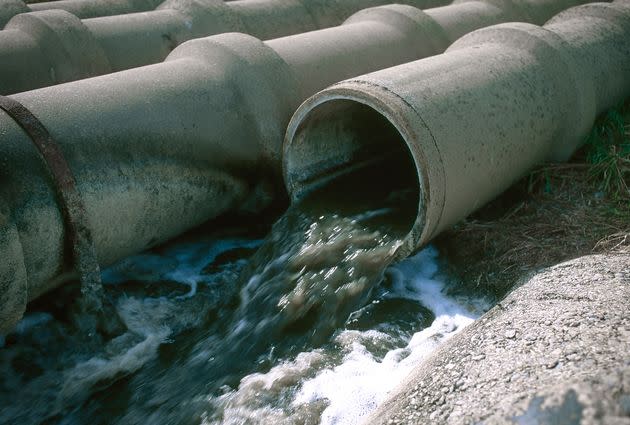Government Makes U-Turn On Dumping Raw Sewage Into The Sea

The government has made a U-turn over allowing water companies to dump untreated, raw sewage into seas and rivers following a backlash against proposals in its legislation.
Just days before the government hosts COP26, the UN’s global climate summit, ministers were facing anger over a practice that has been happening for decades, but has faced renewed scrutiny since Brexit.
The government is bringing forward its own legislation to replace European Union laws that had governed water quality. But its passage through parliament gained wider public attention after MPs last week rejected an amendment to the Environment Bill which would force water companies to stop allowing untreated sewage to enter British waterways.
The U-turn is more surprising since Downing Street said earlier on Tuesday that although it agrees with the failure of water companies putting raw sewage into seas and rivers, the intentions of the amendment to the bill are “already being delivered”.
But, despite ordering MPs to defeat the proposal, the Department for Environment, Food and Rural Affairs (Defra) later said the Bill “will be further strengthened with an amendment that will see a duty enshrined in law to ensure water companies secure a progressive reduction in the adverse impacts of discharges from storm overflows”.
The department said the amendment it would bring forward in the Commons would be “very similar to amendment 45” which peers are debating in the House of Lords – a vote the government was expected to lose.
Environment Secretary George Eustice said: “Earlier this summer, the government published a new strategy for Ofwat mandating them to progressively reduce the discharge of sewage from storm overflows in the next pricing review.
“Following a debate in the House of Commons last week during the final stages of the Environment Bill, today we are announcing that we will put that commitment on a statutory footing with a new clause.”
WATCH: Untreated sewage was released into Langstone Harbour, Hampshire for 49 hours.
Photographer Chris Pearsal, who captured the footage, tells #BBCBreakfast ‘it needs to stop’. https://t.co/Fk7BeZrc2zpic.twitter.com/8lcNHB86qh— BBC Breakfast (@BBCBreakfast) October 26, 2021
Sewage can be pumped out of the sewerage system and into rivers through combined sewer overflows – otherwise known as a storm overflow or release valve. The overflows are designed to release excess water following heavy rain or a storm to stop sewage backing up into homes.
To stop this happening, water companies are allowed to release the rainwater and a smaller amount of untreated sewage, into the country’s waterways.
The Environment Agency has reported that, in the last year, raw sewage was discharged into coastal waters and rivers in England more than 400,000 times, which Defra has branded “unacceptable”.
Eustice told reporters there would be a feasibility study into eradicating the overflows entirely – a move he said could cost between £150 billion and £600 billion – but that work could be done before then to reduce the country’s “reliance on them” over the next few years.
This article originally appeared on HuffPost UK and has been updated.

 Yahoo Finance
Yahoo Finance 


